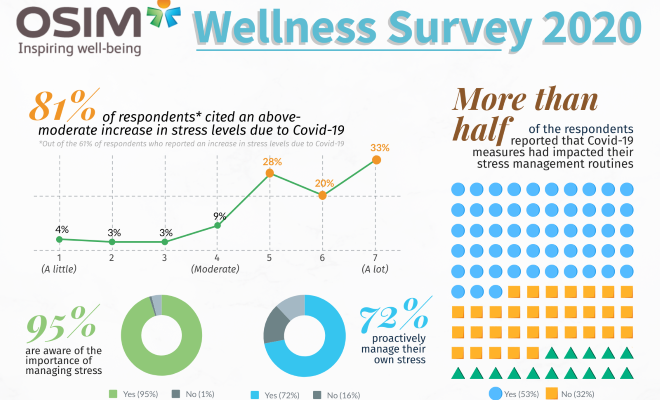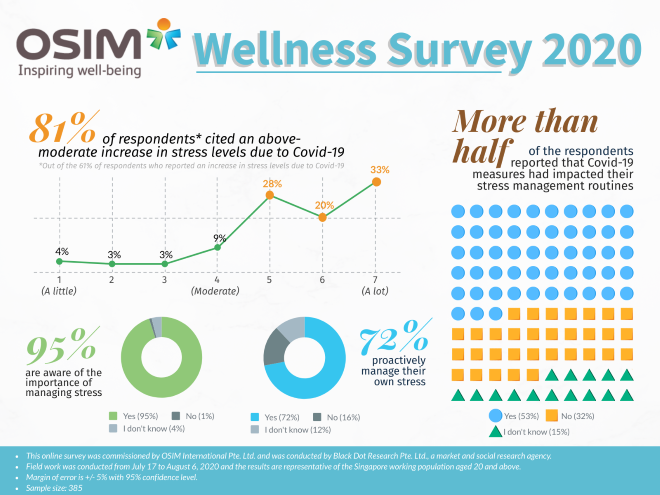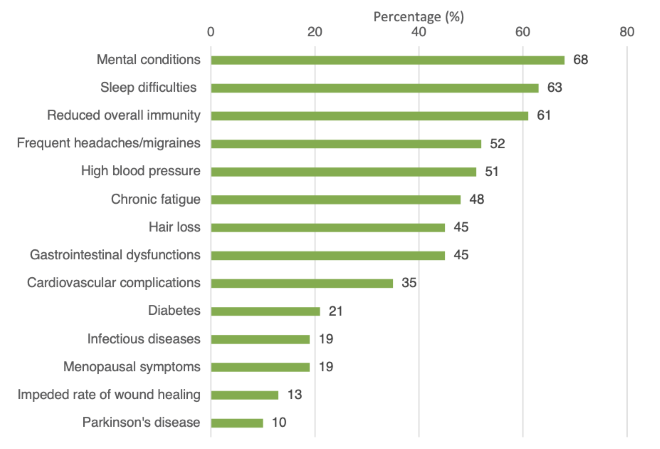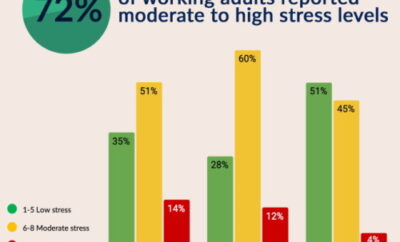
Insights + interviews
OSIM Wellness Survey calls out importance of managing stress
The inaugural OSIM Wellness Survey was conducted between July and August 2020. It surveyed 385 respondents to assess perception towards overall well-being, how individuals perceive their stress levels, and consequently, how they seek to manage and relieve stress.

Due to the COVID-19 pandemic and the associated measures to handle the situation, 61 per cent of respondents indicated an increase in stress levels with 81 per cent reporting an above-moderate increase.
95 per cent of respondents acknowledged the importance of managing their own stress, with a significant majority (72 per cent) managing their own stress proactively while less than one in five respondent (16 per cent) indicating otherwise.
More than 50 per cent of respondents indicated that their usual stress management activities have been disrupted due to health and safety measures. These forms of stress relief include gym workouts, wellness treatments such as massages, as well as group sports.
OSIM has been deeply entrenched in the wellness landscape for over forty years, and we decided that it was important and timely to launch our annual wellness survey to better understand the on-ground sentiment and well-being needs of individuals, as we continue to develop products to tackle the perennial issue of stress. Through the survey results, we hope to provide the public with a greater appreciation and understanding of their individual well-being and encourage more proactive management of their overall health and wellness
Ms Lynn Tan, Deputy CEO of OSIM International
The survey points out a general receptiveness towards a range of sensory therapies for at-home stress relief in Phases 2 and 3 such as massage therapy (a form of sensory therapy) (85 per cent), followed by music therapy (74 per cent) and aromatherapy (71 per cent).

Respondents revealed notable awareness of certain detrimental long-term consequences of stress on their health when asked about their awareness of health conditions associated with stress. Such mental conditions include depression, anxiety and panic attacks (68 per cent), sleep difficulties such as insomnia (63 per cent) and reduced overall immunity (61 per cent).
However, other other long-term health issues associated with stress such as cardiovascular complications (35 per cent), diabetes (21 per cent) and Parkinson’s disease (10 per cent) can benefit from increased awareness and education.









